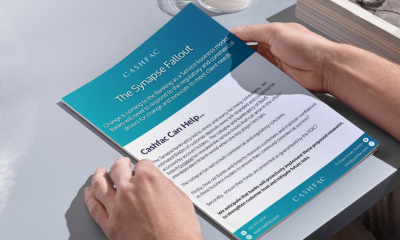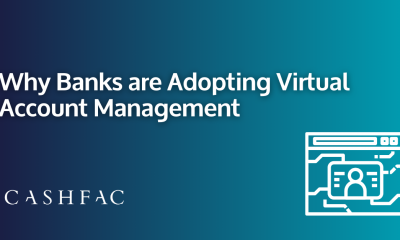Healthcare Share: the evolving market with an identity crisis
Our latest blog looks at how firms in the evolving US healthcare share market can ease their growing pains, differentiation and regulatory challenges

The US healthcare share industry is growing and evolving quickly. Driven by shared member beliefs, health share programs comprise of individuals and families who voluntarily share the cost of each other’s health care. As those in the industry focus on acquiring and retaining members, the challenges of managing increasing volumes and complexities of members’ money becomes more difficult. Cash management technology therefore has a significant role to play in the tech stack of those healthcare share firms with ambitious growth objectives.
But it’s not just growing pains keeping healthcare share firms awake at night. US health regulatory requirements are stringent, and for today’s healthcare share firms the greatest challenge appears to be in distinguishing their identity…
Health Sharing vs. Health Insurance
Health sharing programs are not insurance programs. While both programs are recognized by the HHS (US Department of Health and Human Services), health share programs do not need to meet Affordable Care Act (ACA) requirement. For more details . From the healthcare share companies we have spoken to in recent weeks, it is becoming increasingly evident that they have something of an identity crisis, striving to demonstrate being distinctly different from those insurance companies who fall under ACA regulations.
In order to demonstrate to the state regulators that they are not acting as insurance companies, healthcare share firms need to be able to show the contributions each member has made, including how that member has contributed to the medical needs of others. In other words, they need an account per member showing their detailed credits and debits.
The problem there is that many if not most healthcare share firms operate a pooled account system, where money is paid into an account from all members, and that same account is used to fund the medical needs. These companies need to be able to show the state regulators who has paid in what and who has contributed to which pay-out.
This is where Cashfac comes in…
Integrating virtual accounts with healthcare share platforms
Through the use of virtual accounts, Cashfac’s Virtual Bank Technology (VBT) enables healthcare share providers to create and manage self service accounts for each member or household while operating with a single pooled account at their bank. By integrating VBT with a healthcare share’s platform, these self service accounts:
- Can be opened directly by the Healthcare share provider
- Supports regulatory reporting of member accounts
- Maintain full transaction details of all contributions being paid in
- Detail the member share in health pay-outs
- Provide balance and transaction reporting at member or household level
- Track fees and other administration charges
Find Out More
For more information or to request a consultation with one of our experts on how Cashfac can help your healthcare share firm, please contact us.


